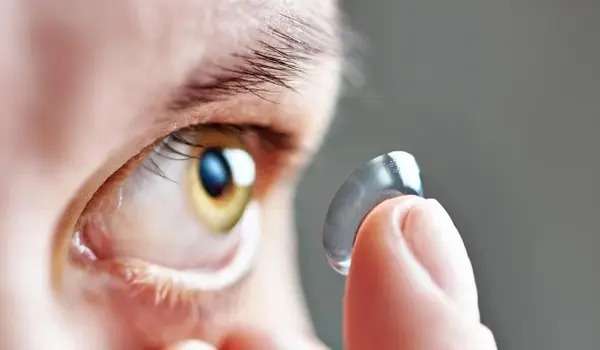A recent study reveals that a naturally occurring substance is an efficient disinfection for contact lenses, which are worn by millions of people throughout the world. Microbial keratitis is one of the most dangerous possible problems for contact lens wearers. It is a corneal infection caused by bacteria, with Pseudomonas aeruginosa being the most frequent.
Previous research has shown that present disinfection methods are ineffective at avoiding biofilm, which are bacterial colonies that adhere to the surface of lenses.
Hydroquinine, an organic molecule present in some tree bark, has been shown to kill Pseudomonas aeruginosa as well as other therapeutically relevant microorganisms such as Staphylococcus aureus, Escherichia coli, and Klebsiella pneumoniae.
Our preliminary findings indicate that soaking contact lenses in a multi-purpose solution containing hydroquinine may help prevent contamination and infection. More research is needed to establish if hydroquinine has any negative side effects or toxicity.
Sattaporn Weawsiangsang
The team behind the discovery, from the University of Portsmouth in England and Naresuan and Pibulsongkram Rajabhat universities in Thailand, has now explored the potential use of multipurpose formulas containing hydroquinine as a disinfectant for contact lenses.
They examined the antibacterial, anti-adhesion, and anti-biofilm properties of hydroquinine-formulated multi-purpose solutions (MPSs), and then compared it to two commercial MPSs; Opti-free Replenish and Q-eye. The natural compound killed 99.9 percent of bacteria at the time of disinfection.
The paper, published in Antibiotics, says these findings may aid in the development of novel disinfectants aimed at combating the P. aeruginosa bacteria.
Dr Robert Baldock from the School of Pharmacy and Biomedical Sciences at the University of Portsmouth, said: “Commercially available disinfecting solutions, which are made up of a number of chemicals, can sometimes cause reactions with painful side-effects.

“We hoped to demonstrate that new agents made from natural products may be an excellent option to limit or reduce the risk of contact lens contamination. It is exciting to see how this research has progressed; from discovery to exploring potential applications.”
There are up to 3.5 million reports of corneal infections each year, and in severe circumstances, they can cause irreversible eye damage and visual loss. When someone uses contact lenses overnight or for a longer period of time than is recommended, their chance of developing microbial keratitis doubles.
According to the World Health Organization (WHO), corneal blindness caused by microbial keratitis is becoming a common cause of visual handicap. The World Health Organization (WHO) has also identified multidrug-resistant P. aeruginosa as one of the most serious infections.
Drug-resistant bacteria cause more than 2.8 million illnesses and 35,000 deaths each year. Antimicrobial resistance occurs when germs mutate over time and no longer respond to antibiotics, making infection treatment difficult.
Amoxicillin and Trimethoprim are commonly prescribed antibiotics that certain strains of P. aeruginosa have become resistant to. Hydroquinine is already known to be an effective agent against malaria in humans, and it is also being used in the Netherlands to treat nocturnal muscle cramps. Until now, there has been little investigation into its drug-resistant properties.
Lead author, Sattaporn Weawsiangsang from the Faculty Of Allied Health Sciences at Naresuan University, is currently a visiting researcher at the University of Portsmouth.
She stated: “Our preliminary findings indicate that soaking contact lenses in a multi-purpose solution containing hydroquinine may help prevent contamination and infection. More research is needed to establish if hydroquinine has any negative side effects or toxicity. We are still testing the drug on a variety of cells, and the results so far look very promising. This possible research could help to create novel disinfectants from natural ingredients, successfully treating P. aeruginosa infections and lowering the number of corneal infections.”
The report continues by urging additional research into hydroquinine’s efficiency with various contact lens materials and against other pathogenic bacteria.
















